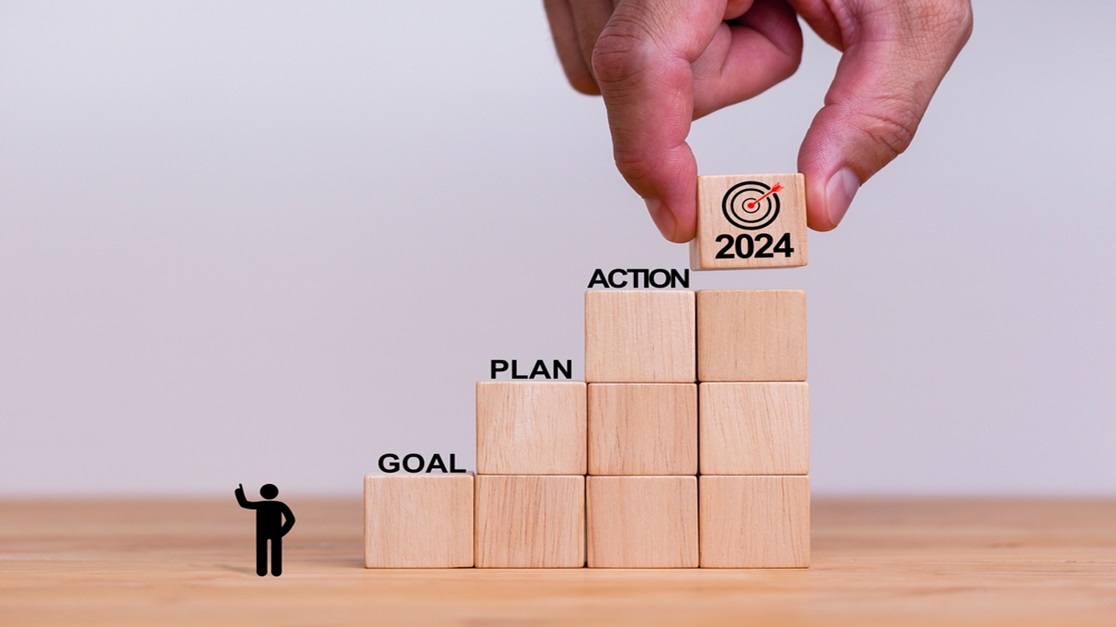The Lifeline in Your Wallet: Using a Savings Account for Unexpected Events
January 20, 2025

It’s a sunny Tuesday morning, and you’re sipping your coffee, scrolling through social media. Life feels predictable, comfortable. Then your phone buzzes with an unexpected alert—your car needs urgent repairs, or there’s an unplanned medical expense. Panic starts creeping in, and you wonder, “How will I cover this?”
This scenario is all too common. Life’s curveballs often hit when we least expect them. But there’s one financial tool that can act as your safety net: your Savings Account. With the right approach, this humble account can be your superhero in times of financial distress. Let’s dive into the art of using a savings account for unexpected events.
Chapter 1: Building the Foundation of Your Financial Safety Net
The first step to using a savings account effectively for emergencies is to ensure it’s purpose-built. Here’s how:
- Create an Emergency Fund: Dedicate a separate savings account specifically for unforeseen expenses. Experts recommend saving at least three to six months’ worth of living expenses as emergency fund. This ensures that even during periods of job loss or major expenses, you’re covered without resorting to loans.
- Set Realistic Goals: Start small. Even saving ₹100 a week can accumulate into a substantial amount over time. Small, consistent contributions can make the goal seem less overwhelming while fostering a habit of saving.
- Automate Your Savings: Enable automatic transfers from your salary account to your savings account. This ensures consistent growth without relying on manual effort, reducing the risk of skipping contributions.
Chapter 2: Staying Disciplined During Financial Sunshine
During times of financial stability, it’s easy to dip into your savings for non-essential expenses. Resist the temptation by implementing these strategies:
- Name Your Account: Label it “Emergency Fund” to remind yourself of its purpose. A clear label serves as a psychological barrier, discouraging unnecessary withdrawals.
- Avoid Linked Debit Cards: Keeping your emergency fund separate and not easily accessible curbs impulsive spending. Opt for accounts without linked ATM or debit card access.
- Visualize the Purpose: Envision the peace of mind your savings will provide during emergencies. This mental exercise strengthens your resolve to save and keeps you focused on long-term security.
Chapter 3: Tapping Into Your Savings Account Wisely
When an emergency strikes, here’s how to use your savings account efficiently:
- Assess the Situation: Define what constitutes a genuine emergency. Unexpected medical bills or urgent home repairs qualify; a flash sale doesn’t. Be objective and prioritize necessities over wants.
- Withdraw Strategically: Calculate the minimum amount needed and withdraw only that to avoid depleting your fund unnecessarily. This preserves your financial cushion for future emergencies.
- Rebuild Quickly: Once the crisis passes, focus on replenishing your savings to maintain financial security for future emergencies. Set incremental targets to restore the fund over time.
Chapter 4: Enhancing Your Savings with Smart Tools
Banks today offer features that can amplify your savings:
- High-Interest Savings Accounts: Opt for accounts with competitive interest rates to maximize returns. These accounts ensure your emergency fund grows passively while remaining liquid.
- Sweep-In Accounts: These automatically transfer excess funds to fixed deposits, ensuring liquidity and higher earnings. It’s a seamless way to earn better interest without compromising accessibility.
- Mobile Banking Alerts: Set alerts for balance thresholds and deposits to stay informed. Proactive monitoring helps you maintain control and avoid unnecessary withdrawals.
Final Thoughts
Life’s uncertainties are inevitable, but financial chaos doesn’t have to be. By building and maintaining a robust savings account, you equip yourself to face the unexpected with confidence and ease. It’s more than just an account; it’s your financial lifeline, ready to catch you when life throws you off balance.
Start today. Because the best time to prepare for an emergency was yesterday; the second-best time is now.
If you're just starting out in your savings journey, opening a Savings Account with Ujjivan Small Finance Bank can be a good start. We have a wide variety of Savings Accounts catering to different financial needs - sign up for the one that meets your financial goals. Alternatively, you can browse through Ujjivan SFB product suite - our wide range of financial products are designed to make your financial life better.
Disclaimer:
The contents herein are only for informational purposes and generic in nature. The content does not amount to an offer, invitation or solicitation of any kind to buy or sell, and are not intended to create any legal rights or obligations. This information is subject to updation, completion, amendment and verification without notice. The contents herein are also subject to other product-specific terms and conditions, as well as any applicable third-party terms and conditions, for which Ujjivan Small Finance Bank assumes no responsibility or liability.
Nothing contained herein is intended to constitute financial, investment, legal, tax, or any other professional advice or opinion. Please obtain professional advice before making investment or any other decisions. Any investment decisions that may be made by the you shall be at your own sole discretion, independent analysis and evaluation of the risks involved. The use of any information set out in this document is entirely at the user’s own risk. Ujjivan Small Finance Bank Limited makes no representation or warranty, express or implied, as to the accuracy and completeness for any information herein. The Bank disclaims any and all liability for any loss or damage (direct, indirect, consequential, or otherwise) incurred by you due to use of or due to investment, product application decisions made by you on the basis of the contents herein. While the information is prepared in good faith from sources deemed reliable (including public sources), the Bank disclaims any liability with respect to accuracy of information or any error or omission or any loss or damage incurred by anyone in reliance on the contents herein, in any manner whatsoever.
To know more about Ujjivan Small Finance Bank Products Visit:"https://www.ujjivansfb.in"
All intellectual property rights, including copyrights, trademarks, and other proprietary rights, pertaining to the content and materials displayed herein, belong
to Ujjivan Small Finance Bank Limited or its licensors. Unauthorised use or misuse of any intellectual property, or other content displayed herein is strictly prohibited and the same is not intended for distribution to, or use by, any person in any jurisdiction where such distribution or use would (by reason of that person’s nationality, residence or otherwise) be contrary to law or registration or would subject Ujjivan Small Finance Bank Limited or its affiliates to any licensing or registration requirements.
FAQs
1. How much should I save in my emergency fund?
Experts suggest saving three to six months’ worth of living expenses. This amount provides a safety net for job losses, medical emergencies, or other significant unforeseen costs.
2. Can I use my savings account for planned expenses?
It’s best to maintain a separate account for planned goals like vacations or large purchases. This ensures that your emergency fund remains untouched and available for its intended purpose.
3. What type of savings account is best for emergencies?
High-interest savings accounts or sweep-in accounts are ideal for emergencies due to better returns and liquidity. These options balance accessibility with growth potential.
4. Should I invest my emergency fund in stocks?
No, emergency funds should be easily accessible and risk-free. Stock investments carry market risks and may not be liquid when you need funds urgently.
5. How do I resist using my emergency savings for non-emergencies?
Label the account specifically as “Emergency Fund” and avoid linking it to your debit card. This creates psychological and logistical barriers against impulsive withdrawals.
6. Is automating savings a good idea?
Yes, automation ensures consistent savings without manual intervention. It eliminates the temptation to skip contributions and builds discipline.
7. What happens if I exhaust my emergency fund?
Focus on rebuilding it as soon as possible. Start with small, consistent contributions and temporarily cut back on non-essential expenses until the fund is restored.
8. How often should I review my savings account?
Review it quarterly to ensure it’s aligned with your goals and financial needs. Regular reviews help you stay on track and make necessary adjustments.
9. Can I use a joint savings account for emergencies?
Yes, but ensure all parties agree on the account’s purpose and usage. Clear communication prevents misunderstandings and ensures the fund serves its intended role.
10. What’s the difference between an emergency fund and regular savings?
An emergency fund is solely for unforeseen expenses like medical bills or urgent repairs. Regular savings, on the other hand, are for planned goals such as vacations, education, or home purchases.
Latest Blogs

Dussehra 2025: How to Win Your Financial Battles with Smart Saving
Dussehra 2025 (also known as Vijayadashami) falls on Thursday, October 2, 2025.

eSIM Scam in India: I4C Warns Mobile Users About Rising Fraud – How to Stay Safe
The Indian Cybercrime Coordination Centre (I4C), a wing of the Ministry of Home Affairs, issued a strong warning to mobile users about the rapid increase in eSIM fraud in India.

How to Link PAN with Aadhaar: Step-by-Step Guide & Consequences of Not Linking
Linking your Permanent Account Number (PAN) with your Aadhaar is no longer just a best practice.

Annual Information Statement (AIS): A Complete Guide for Stress-Free ITR Filing
India’s tax season is in its final stretch.

ITR-1 (Sahaj) Restrictions: Income Sources Not Allowed & Filing Rules
With just a few days left before the 15 September 2025 deadline for filing Income Tax Returns (ITRs) for Assessment Year (AY) 2025-26, many taxpayers are rushing to submit their forms online.





